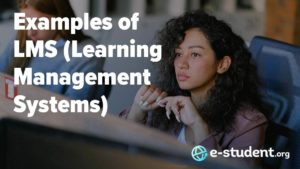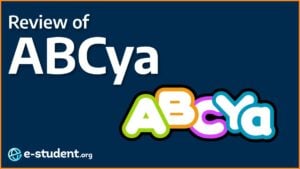Online education has experienced a remarkable surge in popularity, offering learners the flexibility to study from virtually anywhere. Often celebrated for its easy access, it has become a primary avenue for individuals seeking to expand their knowledge and skills. The digital landscape has opened doors to a world of learning, making a wide array of subjects and disciplines accessible to a global audience.
But when knowledge is transferred across distance through digital means, some crucial aspects of education can be neglected. An often-touted criticism of distance learning is that it emphasizes theoretical knowledge, often at the expense of practical skills. From learning languages to coding, one of the best ways to absorb knowledge is by doing and practicing. Getting this practical know-how can be challenging when courses are purely online.
This article explores the underlying reasons for and negative consequences of this tendency. It suggests strategies to create a more balanced online education experience.
Table of Contents
The focus on theory in online education
Online learning strongly emphasizes theoretical knowledge for obvious reasons: it can be delivered much more efficiently through digital platforms, allowing learners to access diverse knowledge at their convenience. Courses in mathematics, history, literature, and countless other subjects thrive in this environment, giving learners a solid foundational understanding.
But while theory is undoubtedly valuable, its overemphasis can lead to gaps in learning, especially when it comes to developing practical skills. Many subjects, from art and design to engineering, computer science, and languages, require more than just explanation but also hands-on practice. This raises questions about the effectiveness of online education in preparing individuals for real-world applications.
Solution: To address this imbalance, practical components must be strategically integrated into online courses. By doing so, online education can provide a more comprehensive learning experience that prepares learners with both theoretical knowledge and practical skills.
For example, online courses can integrate interactive simulations that allow learners to apply theoretical knowledge virtually. In fields like science and engineering, virtual labs can replicate physical labs, enabling students to conduct experiments, providing access to expensive equipment, reinforcing practical skills, and bridging theory and practice.
Distance learning courses can also feature hands-on projects. Art courses can include physical artworks that are virtually captured and assessed, and language learning can feature live oral presentations through video conferences. Collaborative learning experiences that involve peer interaction can also be valuable. These projects simulate real-world scenarios, requiring students to apply their theoretical knowledge and fostering critical thinking and problem-solving skills.

Industry relevance and employability
This gap in practical skills in online education can have real consequences for learners. In today’s competitive job market, concrete skills can help job seekers stand out. Employers want candidates who are not only knowledgeable but can apply that information in real-world settings. And balancing theory with practice in online education ensures that learners are prepared for this.
Graduates from online programs should be well-prepped to meet industry demands, and their education should ideally make them more employable. Many university graduates actually turn to online learning as a way to upskill themselves after traditional education. But, if online courses primarily focus on theory, graduates may still find themselves ill-equipped to tackle the tangible challenges of their chosen professions, which often involve concrete problem-solving and decision-making.
Even if online courses are taken as hobbies or ‘side hustles,’ learning to play an instrument, speak a language, or cook requires hands-on experience. The limits of online learning might deter potential students who are serious about developing their skills.
Solution: To address this issue, online learning platforms should offer courses that strike a balance between theoretical knowledge and practical skills. By aligning education with the skills sought by employers, online education can contribute significantly to graduates’ job readiness. Courses can feature exercises directly related to skills that learners might need to, for example, master a language or start a business. Industry experts and professionals can provide insight to ensure this is the case.

To strengthen learners’ employability, assessments can also emphasize this skill-centric approach. They should ideally go beyond traditional exams and quizzes, testing students’ ability to apply skills in actionable scenarios. This might involve project presentations, internships, portfolios, or performance evaluations. As mentioned, collaborative learning is also important because it can prepare students for future teamwork in organizational settings.
Learner preferences and engagement
Engaging learners in an online environment is an ongoing challenge. There is less monitoring and more distractions than in a traditional classroom, which can undermine focus. But this is another reason why emphasizing theory can lead to poor outcomes for learners. While theoretical content serves a vital purpose, it may not always be the best at captivating learners’ attention or maintaining engagement. If learners merely passively consume information, they tend to retain less of it, and their ability to apply the knowledge is limited.
Solution: With active learning involving hands-on experiences and practical applications, students are more engaged and retain more information. Learners are also more likely to remain motivated when they can see the immediate relevance of their studies to real-world scenarios.
Online courses should incorporate interactive elements and practical applications to encourage learners to be more engaged. They should be given the opportunity to apply theory in a practical context through encouraging participation, using case studies, and featuring problem-solving activities.

Conclusion
The absence of a physical classroom can present challenges when teaching practical skills, which is why online courses often focus on theory. This emphasis can equip learners with a strong foundational understanding of their studies in various subjects, from politics to business. But, effectively preparing learners for real-world applications requires balancing theory and practice. In today’s competitive job market, neglecting or including practical skills can seriously impact students’ employability.
To create a more well-rounded and effective online education experience, courses need to seamlessly integrate practical training components alongside theoretical content. By doing so, they can offer a comprehensive learning journey that caters to students’ diverse needs and aspirations. This inclusive approach ensures that graduates are not only knowledgeable but also skilled in applying that knowledge to concrete challenges. If online courses take this into account, they can empower learners to excel in their chosen fields by making it a valuable and relevant pathway to both theoretical expertise and skill development.



